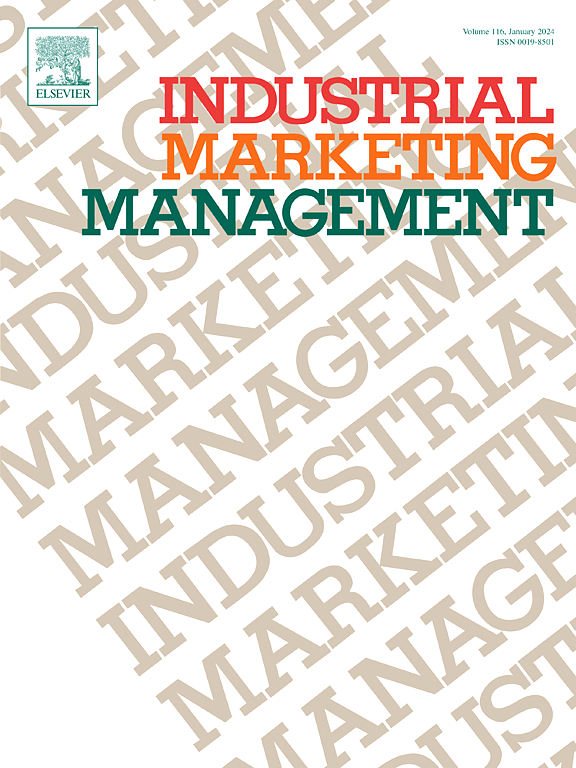供应链数字化、创新能力与组织敏捷性:制度化与供应链整合的调节作用
IF 7.5
1区 管理学
Q1 BUSINESS
引用次数: 0
摘要
在供应链中断的时代,供应链数字化是通过创新思维创造组织敏捷性的主要动态能力。外部因素在组织敏捷性中的作用缺乏经验证据。因此,本文借鉴动态能力理论,解决了研究问题:供应链数字化如何促进企业对企业关系中的组织敏捷性?我们收集了201家企业对企业组织的实证数据,以检验所提出模型中的假设关系,并解决研究问题。研究结果表明,供应链数字化有助于提高创新能力,从而提高组织的敏捷性。本文还提出了两个调节因素,供应链整合和制度化,来解释供应链数字化何时适得其反。供应链整合强化了供应链数字化对创新实践的正向影响,而制度化对创新实践具有负向调节作用。本文的主要贡献在于提出了组织敏捷性研究中的有调节中介效应。本文章由计算机程序翻译,如有差异,请以英文原文为准。
Supply chain digitalization, innovation capability, and organizational agility: The moderating role of institutionalization and supply chain integration
In times of supply chain disruptions, supply chain digitalization is a primary dynamic capability to create organizational agility through innovative thinking. There is a lack of empirical evidence about the role of external factors in organizational agility. Therefore, drawing upon the theory of dynamic capabilities, this paper addresses the research question: How can supply chain digitalization contribute to organizational agility in business-to-business relationships? We collected empirical data from 201 business-to-business organizations to test the hypothesized relationships in the proposed model and address the research question. The findings reveal that supply chain digitalization contributes to innovation capability, which can result in organizational agility. This paper also proposes two moderators, supply chain integration and institutionalization, to explain when supply chain digitalization backfires. Supply chain integration strengthens the positive effects of supply chain digitalization on innovative practices, while institutionalization has a negative moderating impact. The main contribution of this paper is the presentation of moderated mediation effects in organizational agility studies.
求助全文
通过发布文献求助,成功后即可免费获取论文全文。
去求助
来源期刊

Industrial Marketing Management
Multiple-
CiteScore
17.30
自引率
20.40%
发文量
255
期刊介绍:
Industrial Marketing Management delivers theoretical, empirical, and case-based research tailored to the requirements of marketing scholars and practitioners engaged in industrial and business-to-business markets. With an editorial review board comprising prominent international scholars and practitioners, the journal ensures a harmonious blend of theory and practical applications in all articles. Scholars from North America, Europe, Australia/New Zealand, Asia, and various global regions contribute the latest findings to enhance the effectiveness and efficiency of industrial markets. This holistic approach keeps readers informed with the most timely data and contemporary insights essential for informed marketing decisions and strategies in global industrial and business-to-business markets.
 求助内容:
求助内容: 应助结果提醒方式:
应助结果提醒方式:


